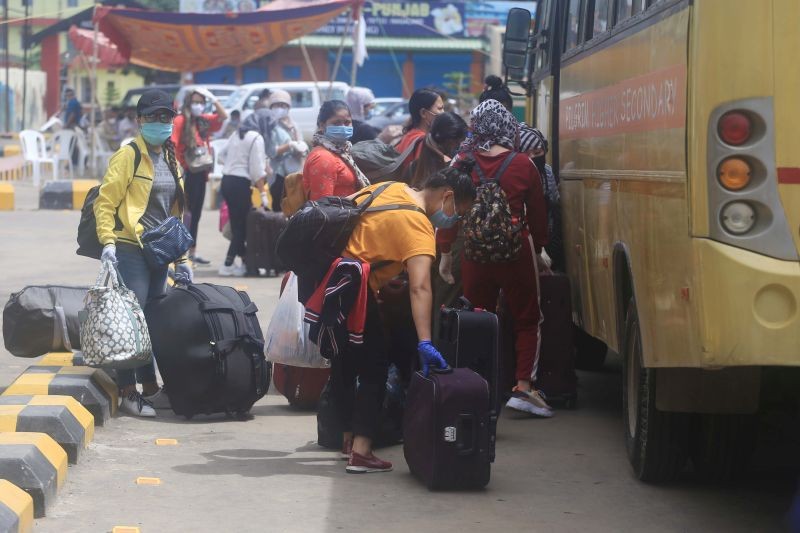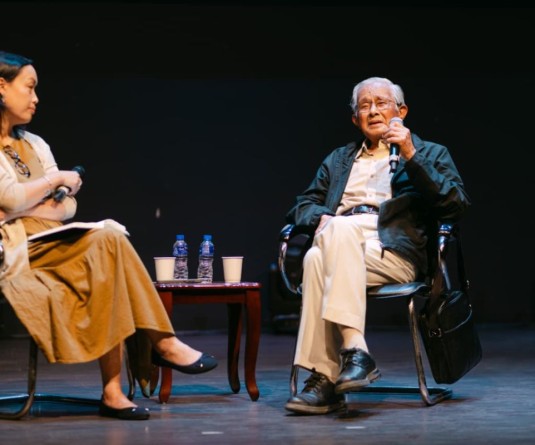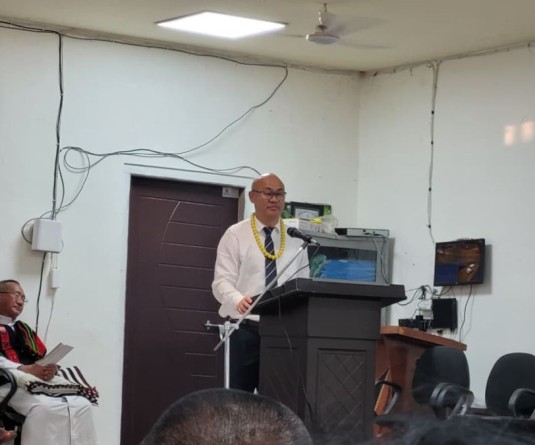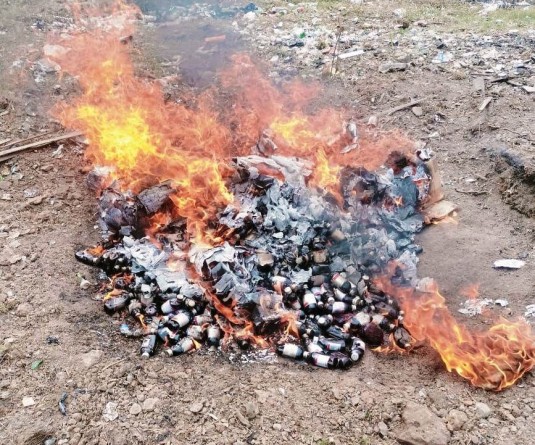Returnees arriving at Dimapur Railway Station in the month of June. (Morung File Photo)

Morung Express News
Kohima | September 4
As one of the many memes relating to COVID-19 reads “Corona didn’t break the system. Corona exposed a broken system,” a legislator admitted to the fact stating “we have inherited a system which has been faulty and which has not been addressing the key issues.”
This was admitted by Mmhonlumo Kikon, Advisor IT, Science & Technology, NRE, who is also the Spokesperson for COVID-19 on behalf of the state government during webinar panel discussion on COVID-19 and its related issues organised by the Kripa Foundation and Kohima Press Club (KPC) today as guest speaker.
“We have inherited a system which we need to critically see and we need to rethink from the community and grassroot level till the top on how to build a system which works for all of us and not just for some of us,” stated Kikon.
As this pandemic has exposed a huge shortage of medical doctors, he viewed that it could be due to the fact that in the past, Primary Health Centres (PHCs) in the state were set up based on ‘political consideration and not on the data and criteria’ laid down by the Ministry of Health and Family Welfare.
“In the past, the criteria for setting up PHCs was not based on data and criteria laid by the Ministry, that is where we have failed and during this pandemic, when we discussed the shortage of doctors in various PHCs, we have realised that because the population ratio was not taken into consideration, certain areas and districts were deprived of PHCs,” pointed out Kikon.
Citing some instances where there are 2-3 PHCs in surrounding villages and none in certain areas with 19-20 villages, Kikon nonetheless said, this pandemic and lockdown has brought a positive outcome for the people as it has come to the knowledge of the health department where PHC is required and deserved in certain areas.
He also noted the positive impact of COVID-19 where the government has prioritise budget on health and education sector today towards ramping up health care facilities, and that the states were compelled to ramp the health care system due to the pandemic.
Strongly emphasising on the need to change the system, Kikon asserted, “we need to go back to our grassroot and its system, need to re-imagine a state where policies will address the needs of the people.”
While stating that the channel of communication is very crucial, he maintained that it doesn’t only involve only talking to each other, but also involves process of accepting the challenges together and taking ownership.
“Unless you love the state, you will not want to take ownership of the challenges, and if you don’t, there will be no credible and serious redressal of the problems that we have today,” Kikon stated.
“Not blaming anyone of the past, but it is our duty to take the state forward depending on how serious we are. The new normal should be able to address our issues with sensitivity and responsive to the challenges that we faced everyday from the policy makers down to the farmers,” he further stated.
The discussion was moderated by Rita Krocha, senior journalist, poet, author and founder of Penthrill Publication House.
COVID-19 vaccines and its status
While the development of a COVID-19 vaccine is being awaited impatiently globally compounded with lots of obscure information on the development of COVID-19 vaccines flying around is creating more anxiety among the people, including the state of Nagaland.
Given the kind of unprecedented situation arising out of the COVID-19 pandemic which has severely disrupted and almost paralysed all aspects of civilisation the world over, an earliest vaccine is anticipated by every country.
To this end, Gilen Khwairakpam, programme manager, Community’s and Policy TREAT Aisa/amfAR, the Foundation for AIDS Research Bangkok, Thailand presented the latest update on COVID-19 vaccines and its status.
As on August 31, Khwairakpam speaking on COVID-19 vaccine and treatment said among the 176 vaccine candidates globally, 33 are in clinical stages while 143 are in pre-clinical stages. Out of the 33 clinical stages, eight have either started or about to begin the phase-III trail. He further informed that most of the vaccines trail will continue till November 2021 to October 2022.
On the COVID-19 vaccines in India and trails that have been taking place, Khwairakpam informed that Serum Institute of India, Bharat Biotech and Zydus Cadilla are currently involved in the development of a vaccine.
Serum Institute of India has 1600 participants for the trial with phase II and III going in 17 sites with a time frame of seven months which began on August 24, while Bharat Biotech with 1125 participants for phase I and II are going on 12 sites where the trials are expected to go on till June 2021.
With 1048 participants for the Zydus Cadilla phase I/II trial which will run until June 2021 with reports on safety and tolerability in phase I, he informed.
Kikon also informed that the government of India has already constituted a National Expert group on vaccine administration for COVID-19 who has been tasked with the vaccine development include trail, stock piling, sorting out issues of financing, risk management etc.
He further stated that according to the ICMR the vaccine might probably come in the first quarter of 2021 where the government has already prepared a roadmap to ensure the vaccine is available to the people with priority to the frontliners.
Inclusive approach to address problems
Speaking on the HIV and human rights, Dr Bilali Camara, Medical Epidemiologist, UNAIDS Country Director for India, UNAIDS awardee for Human rights defenders UN House, New Delhi maintained that the world is facing the toughest pandemic in the form of COVID-19.
“This COVID-19 is antagonistic to our social values,” said Dr Camara as the world is facing serious and critical challenges with huge impact on the economy.
At these times while the pandemic has severely affected other health related problems, particularly the drug users and PLHIVs, he viewed that it is important to accept the rights of the people by listening to the voice of the community and engaging the community.
“We are one people, one humanity and no one can win alone,” said Dr Camara and emphasised on the need for the government and its agencies to involve the communities with an inclusive approach towards addressing the issues and problems prevalent in the society.
Kikon also noted that the pandemic has caused not just the issue of delivery of OST but it has also impacted the livelihood of most of the drug users in the state. To this, he viewed that stakeholders need to prioritise on this, which has been neglected in the past years.
He also wondered “if the expert views or their expertise are being utilised, whether we are actually producing or engaging enough experts or whether our experts are upto date in terms of their research works.”
Concurring with Dr Camara, Kikon urged for community active participation and institutional collaboration towards addressing issues that are facing the drug users and PLHIVs.






